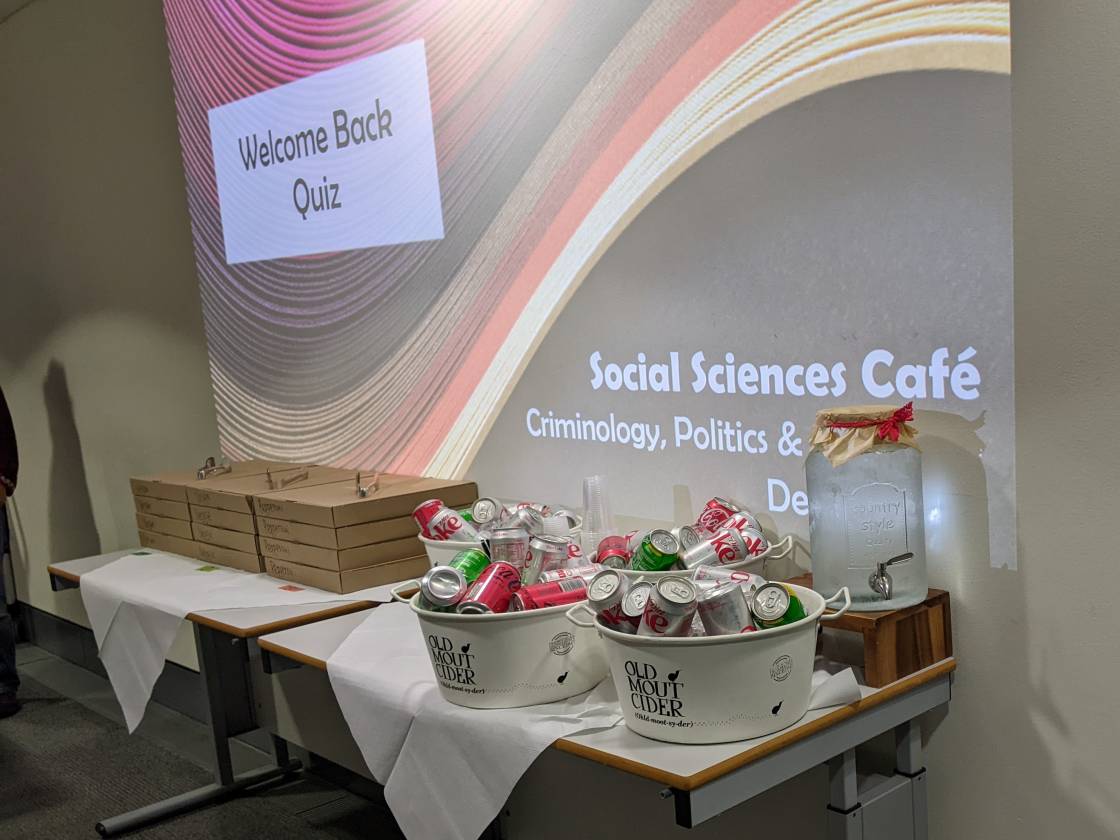Criminology and Criminal Justice BSc (Hons)
Why choose this course?
This exciting course is designed for aspiring criminologists and those wishing to learn about the criminal justice system.
You will explore fascinating topics, including the causes of crime, its impact on individuals and communities, and how society responds. You will also learn about crime, victimisation and criminal justice policy and systems across the world.
You will be taught by an experienced team of research active lecturers who use a range of interactive teaching and innovative assessment methods, including court observations, crime scene house investigation, empirical research, case study analysis, podcasts, and briefing and policy reports
We have strong links with a range of practitioners, including the police, community safety teams, NGOs, charities, criminal justice policy makers and governmental organisations. You will have opportunities to undertake volunteering placements or internships, gaining practical experience in the field. We also have an inspiring line-up of guest speakers who share their experiences from working in criminal justice.
Please note: this course is still subject to validation. Some course information may not be available at this time.
| Attendance | UCAS code/apply | Year of entry |
|---|---|---|
| 3 years full time | TBC | 2026 |
| 4 years full time including foundation year | TBC | 2026 |
| 4 years full time including professional placement | TBC | 2026 |
Please note: this course is subject to validation.
| Main Location | Penrhyn Road |
Reasons to choose Kingston University
- Through a work placement or volunteering internship option you will be able to apply and practice your skills and gain valuable experience for your future career. The special emphasis on criminal in this programme is particularly well suited to a future careers in advocacy, youth justice, probation, the resettlement of offenders, victim support, social research and criminal justice policy making.
- You will develop well-rounded knowledge of key issues within criminology and be able to apply this to real-world issues.
- You will learn about the criminal justice system and engage with debates bout the application of justice. Your knowledge will be enhanced by meeting and working with a range of criminal justice practitioners.
- We have a comprehensive programme of guest speakers who share their insights and experiences, including police detectives and undercover operatives, probation officers, NGO founders and criminal justice policy makers.
- We are focused on supporting, preparing and equipping you for your professional life after university.
What you will study
You will study a broad range of topics including: the social, legal and cultural meanings of deviance and crime, the crime problem; processes of criminalisation; media and crime; the causes and organisation of crime; victimisation and harm at individual, group, community, institutional and state levels; risk and crime in a digital age; crime prevention; criminal justice agencies and work; miscarriages of justice; social control and policing; courts; probation, prisons and punishment; and global and transnational forms of crime.
Example modules
- Crime, Law and Justice
- Exploring Crime and Deviance
- Criminal Justice: Policing, Prison and Probation
- Global Crime and Justice
- Crime, Media and Culture
- Risk and Crime in a Digital Age
- Victimisation and Harm
- Youth, Crime and Justice
Foundation year – Social Sciences
If you would like to study this degree at Kingston University but are not yet ready to join the first year of a BSc (Hons) course, you may want to consider studying this course with a foundation year.
Future Skills
Knowledge to give you the edge
Embedded within every course curriculum and throughout the whole Kingston experience, Future Skills will play a role in shaping you to become a future-proof graduate, providing you with the skills most valued by employers such as problem-solving, digital competency, and adaptability.
As you progress through your degree, you'll learn to navigate, explore and apply these graduate skills, learning to demonstrate and articulate to employers how future skills give you the edge.
At Kingston University, we're not just keeping up with change, we're creating it.

Kingston School of Law, Social and Behavioural Sciences
The School offers courses in economics, sociology, law, psychology and criminology. Our degrees are underpinned by a vibrant research culture and delivered by a blend of practitioners and academics who are dedicated to equipping you with the employability skills to thrive in your career.
You will have a wealth of opportunities outside the classroom to further your learning and gain hands-on experience in your chosen field.
Social Sciences Café
Social Sciences Café (SSC) is a series of events within the Department of Criminology and Social Sciences which aims to help prepare students for life after graduation. Students can take part in seminars on employability skills and postgraduate studies; speaker and panel events on topical issues that engage the broader Kingston University (KU) community; and social events linked to key moments in the academic calendar.
SSC is often visited by KU graduates working in the public, private and third sector in the UK and around the world, who are keen to share their career journeys and advice for students at an early stage of their career planning, as well as professionals for ‘meet the employer' advice and networking sessions.

After you graduate
Graduates will be well placed for a broad range of careers, both within and beyond the criminal justice system. These include policing, the Prison and Probation service, the Home Office, the Ministry of Justice, youth work, advocacy work, social research, crime data analysis, victim support and social welfare, and local and central government.
There are many employers located in London. For example, the Police (six police services), the Prison Service (14 prisons) and Probation Service, 32 local authorities (community safety, trading standards, youth justice work), the Crown Prosecution Service, College of Policing, Security Service, the Police Foundation, Liberty, Amnesty International, the National Health Service (fraud), Amnesty International, private sector (e.g. G4S and Securitas) and Charities (e.g. Appeal, Victim Support, NACRO).
These organisations offer a range of roles, using practical skills (interviews, managing cases), analysis work (exploring data and crime trends), research (writing proposals and collecting research data), management (managing security contracts, managing offenders); welfare ( supporting offenders and victims of crime).
Specialist careers support
You will take part in an Assessment Centre Experience, providing the opportunity to experience the pathway to employment with tailored feedback to help develop your employability skills for the world of graduate employment.
- Develop your understanding of the jobs market, including current trends and opportunities, different recruitment processes and how to identify relevant roles
- Receive personalised feedback reports to help you to improve and progress
- Access additional webinars on top tips, employer expectations and best practice

Entry requirements
Who teaches this course?
You will be taught by an experienced teaching team whose expertise and knowledge are closely matched to the content of the modules on this course. The team includes senior academics and professional practitioners with industry experience. Postgraduate research students may also contribute to the teaching of seminars under the supervision of the module leader.
Course changes and regulations
The information on this page reflects the currently intended course structure and module details. To improve your student experience and the quality of your degree, we may review and change the material information of this course. Course changes explained.
Programme Specifications for the course are published ahead of each academic year.
Regulations governing this course can be found on our website.









